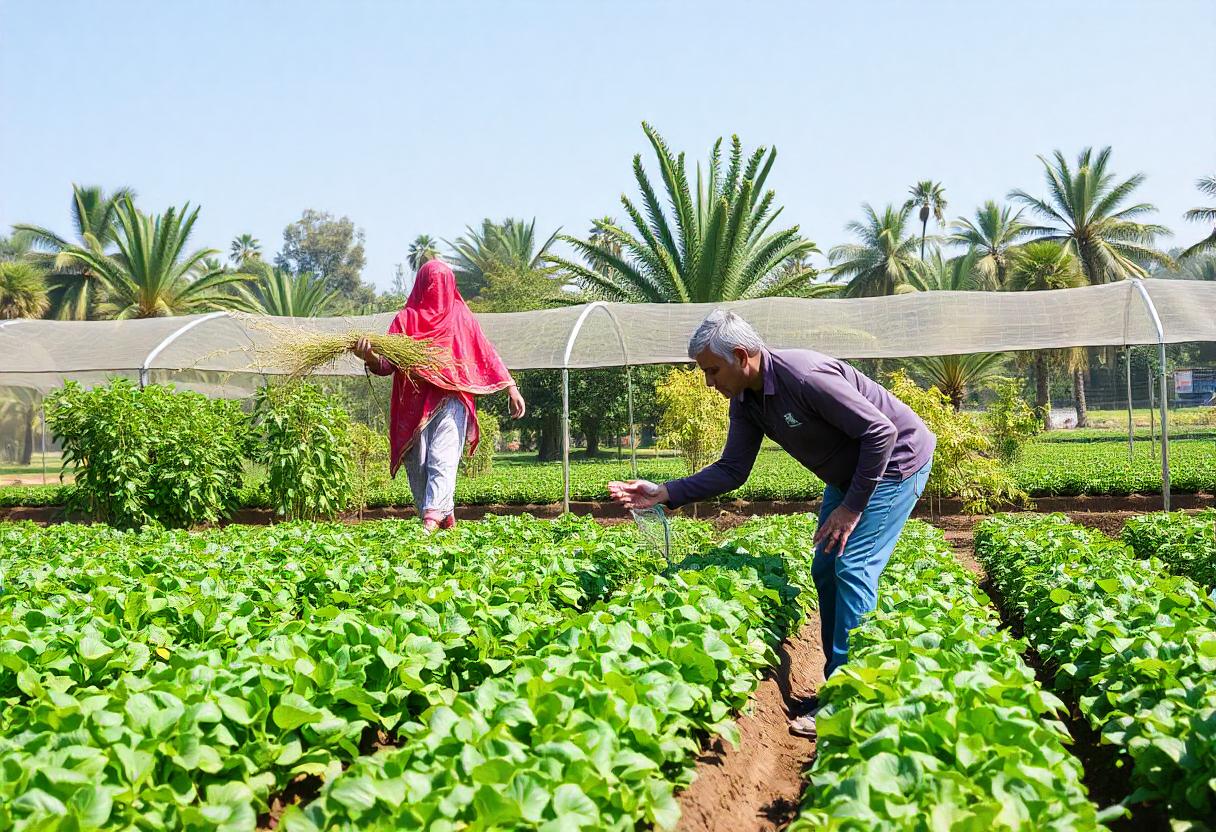
Agriculture horticulture is a specialized branch of agriculture focusing on the cultivation and management of garden crops, including fruits, vegetables, nuts, seeds, herbs, sprouts, mushrooms, algae, and non-food crops such as flowers and landscape plants. It plays a crucial role in enhancing food security, promoting environmental sustainability, and supporting the economy.
Key Areas of Horticulture
Fruit and Vegetable Production
Fruit and vegetable production is a major aspect of horticulture, involving the cultivation of edible plants for human consumption. This includes the development of new crop varieties, pest and disease management, and optimizing growing conditions. Techniques such as organic farming, hydroponics, and vertical farming are often employed to increase yields and sustainability.
Flower and Ornamental Plants
The cultivation of flowers and ornamental plants is another important area of horticulture. This sector includes the production of plants for aesthetic purposes, landscaping, and interior decoration. Horticulturists in this field work on plant breeding, pest control, and the development of new varieties to meet market demands and enhance the beauty of residential and commercial spaces.
Landscape Horticulture
Landscape horticulture involves designing and maintaining outdoor spaces, including gardens, parks, and public areas. This field combines principles of horticulture with landscape design to create functional and visually appealing environments. Landscape horticulturists work on plant selection, soil preparation, irrigation systems, and garden maintenance.
Nursery and Greenhouse Management
Nursery and greenhouse management focuses on the production of young plants and the cultivation of plants in controlled environments. This area includes the propagation of plants, managing greenhouse conditions, and ensuring plant health. Greenhouse technologies allow for year-round production and the ability to grow plants that might not thrive in outdoor conditions.
Techniques and Innovations
Soil and Water Management
Effective soil and water management is essential for successful horticulture. Techniques such as soil testing, irrigation systems, and water conservation practices help optimize plant growth and resource use. Advances in technology, such as automated irrigation systems and soil moisture sensors, are increasingly used to improve efficiency.
Integrated Pest Management (IPM)
Integrated Pest Management (IPM) is a holistic approach to managing pests in horticultural systems. It combines biological, cultural, physical, and chemical methods to control pest populations while minimizing environmental impact. IPM strategies help reduce reliance on chemical pesticides and promote sustainable practices.
Biotechnology and Genetic Engineering
Biotechnology and genetic engineering have introduced new possibilities in horticulture. These technologies enable the development of disease-resistant plant varieties, improved crop yields, and enhanced nutritional content. Genetic modifications and tissue culture techniques are used to create plants with desirable traits and improve overall productivity.
Education and Career Opportunities
Educational pathways in horticulture typically include degrees in horticultural science, plant biology, or related fields. Many universities and colleges offer specialized programs that cover various aspects of horticulture, including plant physiology, pest management, and landscape design. Career opportunities in horticulture include roles in research, production, landscape design, and education.
Economic and Environmental Impact
Horticulture has a significant impact on both the economy and the environment. It contributes to food security by providing a diverse range of crops and supports local economies through job creation and business opportunities. Environmentally, horticulture practices such as sustainable farming and landscape management contribute to ecological balance, enhance biodiversity, and improve air and soil quality.
Future Trends
The future of horticulture is expected to be shaped by several trends, including:
- Sustainability: Increased focus on sustainable practices to reduce environmental impact and enhance resource efficiency.
- Technological Integration: Adoption of advanced technologies such as automation, precision agriculture, and smart irrigation systems.
- Urban Agriculture: Growth of urban horticulture practices, including rooftop gardens and community plots, to meet local food demands and improve urban environments.
Agriculture horticulture remains a dynamic and vital field, driving innovation and contributing to the well-being of societies by providing essential food resources, enhancing landscapes, and supporting environmental sustainability.